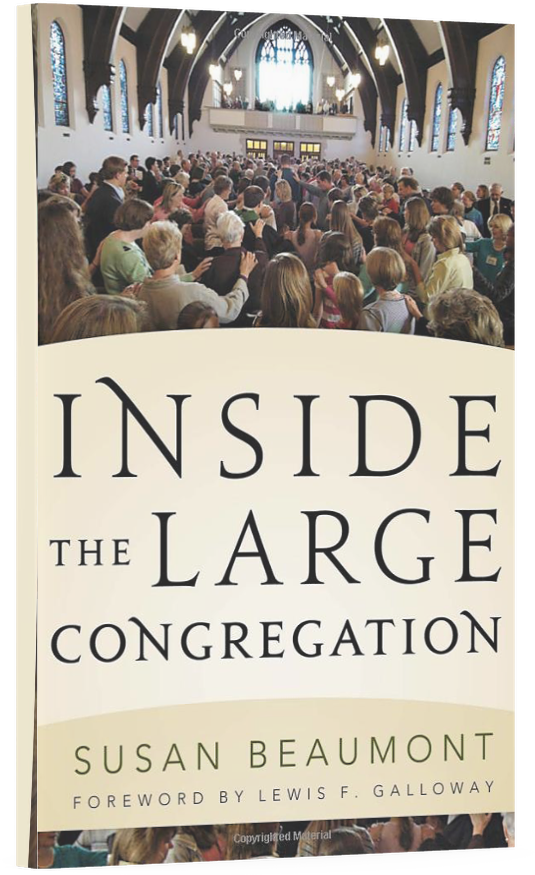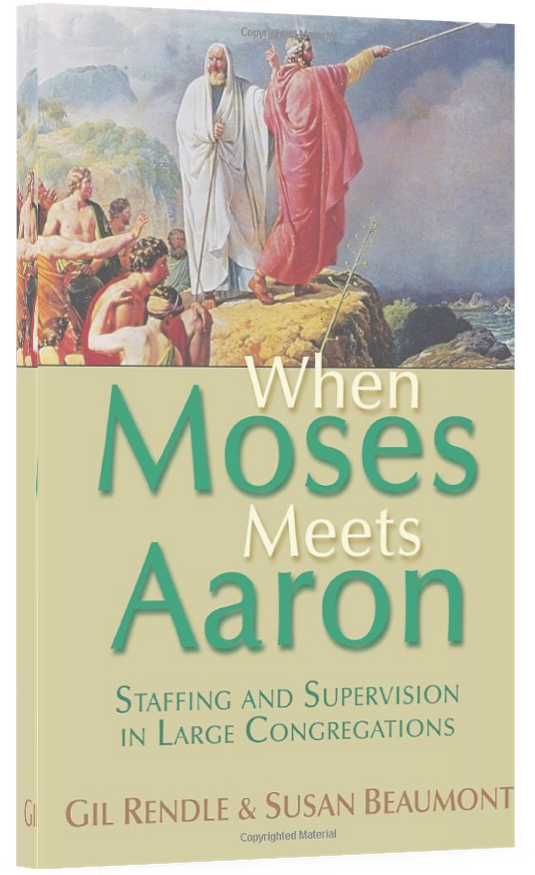Congregations that employ more than one pastor often grapple with the authority relationships between those two pastors, particularly in congregations that call their pastors and embrace a congregational form of polity. Increasingly, these congregations are inquiring about, or exploring, co-pastorate relationships. I’m using the terminology here to refer to a relationship in which there is no designated senior pastor. Both pastors function with shared authority and equal salaries. The notion of equally yoked pastoral leadership is attractive because it models a form of shared power and decision making that we’d like to see lived out in our congregations and in our communities. We’re attracted to the ideal of shared authority, to the ideal of equally valuing the giftedness of our pastors, and to the ideal of equal pay for equal work. Co-pastor relationships seem like a good leadership model for embracing all of these principles.
While these ideals are noble and noteworthy there are some serious problems and repercussions in the practicality of co-pastor relationships that, I believe, make them a less than stellar managerial option. In my experience, co-pastor relationships either work brilliantly (because the chemistry in the partnership is right from the beginning and the congregation doesn’t have to do much to keep it healthy) or they fail miserably. When they work brilliantly there is a beautiful synergy in the relationship that infects the congregation in a very positive way. When they don’t work well they can be a disaster, not just for the two ministers but for the entire congregation.
Let’s explore some of the reasons that these partnership tend to fail.
By design, a co-pastor relationship requires having two ministers with skill sets that are different, but perceived as equal, in the eyes of the congregation. Right away we’re off to a difficult start. Congregations tend to value preaching, teaching and pastoral care over community involvement, social justice, administration and religious education. Two ministers with different preaching skills may not be viewed equally in the eyes of the congregation. In fact, the congregation doesn’t really need two equally gifted preachers. Will the congregation ever invest the weaker preacher with the same ministerial authority that they vest in the stronger preacher? Probably not.
A co-pastor relationship requires having two ministers that are equally loved and known by the congregation, and equally valued in pastoral care. Ministers earn much of their authority in the life of the congregation through their pastoral care involvement. If co-pastors enter the church together the church has a reasonable shot at keeping this part of the relationship healthy. If one of the ministers has already been serving in the congregation for an extended period of time, the longer tenured pastor will have established stronger relationships with congregants. The second minister that enters the system at a later point in time may have a very difficult time establishing the kind of pastoral care presence needed to fully vest the authority of the role. The longer established, longer loved minister will always be perceived as having more power and authority in the system, even though the two roles are designed to share power equally.
Clarity of vision and strategy is critical, particularly in the large congregation. Vision drift is one of the biggest threats to the large congregation. It’s very easy for the collective staff team and governing body to lose clarity of focus. The large congregation is capable of doing so many things well that it has difficulty keeping a clear eye on the distinctive program strengths and core identity of the congregation. A singular point person who is charged with maintaining the vision clarity of the congregation (through careful coordination of the staff team and the governing board) has a better shot at this than a shared partnership does.
The overall performance management system of the staff team works best when every person on the staff team has one clear supervisor. This is the person with whom they negotiate their role and set performance expectations, and from whom they receive feedback. A co-pastor relationship may or may not impact this dynamic. Confusion reigns if members of the staff team have to begin negotiating role expectations with two different ministerial leaders, and either minister can call for a change in ministry priorities. Sluggishness occurs if members of the staff team have to seek permission to act from two different leaders. If there is not clarity in supervisory relationships the entire staff team begins to function with a murkiness that is palpable throughout the entire congregation.
One of the greatest challenges that the governing body of a congregation faces is its oversight role of the senior minister. Historically, congregations haven’t done this task very well. A co-pastor relationship place much greater demands on the governing board in its role as supervisor of the ministers. The co-ministers are ultimately accountable to the board. If disagreements between the two ministers emerge, that they are unable to effectively resolve between themselves, the board will be called upon to mediate. There is a level of complexity presented by a co-pastor relationship that exponentially increases the skills sets needed by board members to serve as mediators/employers. If the co-pastor relationship is not working well, all of the energies of the board will be consumed by the relationship, because there is simply no other place in the church for the relationship to be managed. A governing body that is wrapped up in the dysfunction of a co-pastor relationship doesn’t have much energy for its other critical tasks.
Finally, and very pragmatically, congregations often find it difficult to pay two ministers equally and still set compensation packages high enough to attract the best of talent. I know this seems callous and perhaps unjust, but it is real. A congregation’s capacity to support ministerial salaries works best when there is one higher paid senior minister who brings an elite skill set and one assistant or associate minister who comes in with a lower price tag because of lesser experience or skill set. Hiring two, equally skilled and highly gifted ministers may be outside the financial capacity of the congregation. Hiring two, equally skilled and lesser gifted leaders will probably not provide the congregation with the leadership that it needs. You may find yourself faced with a pool of substandard candidates.



